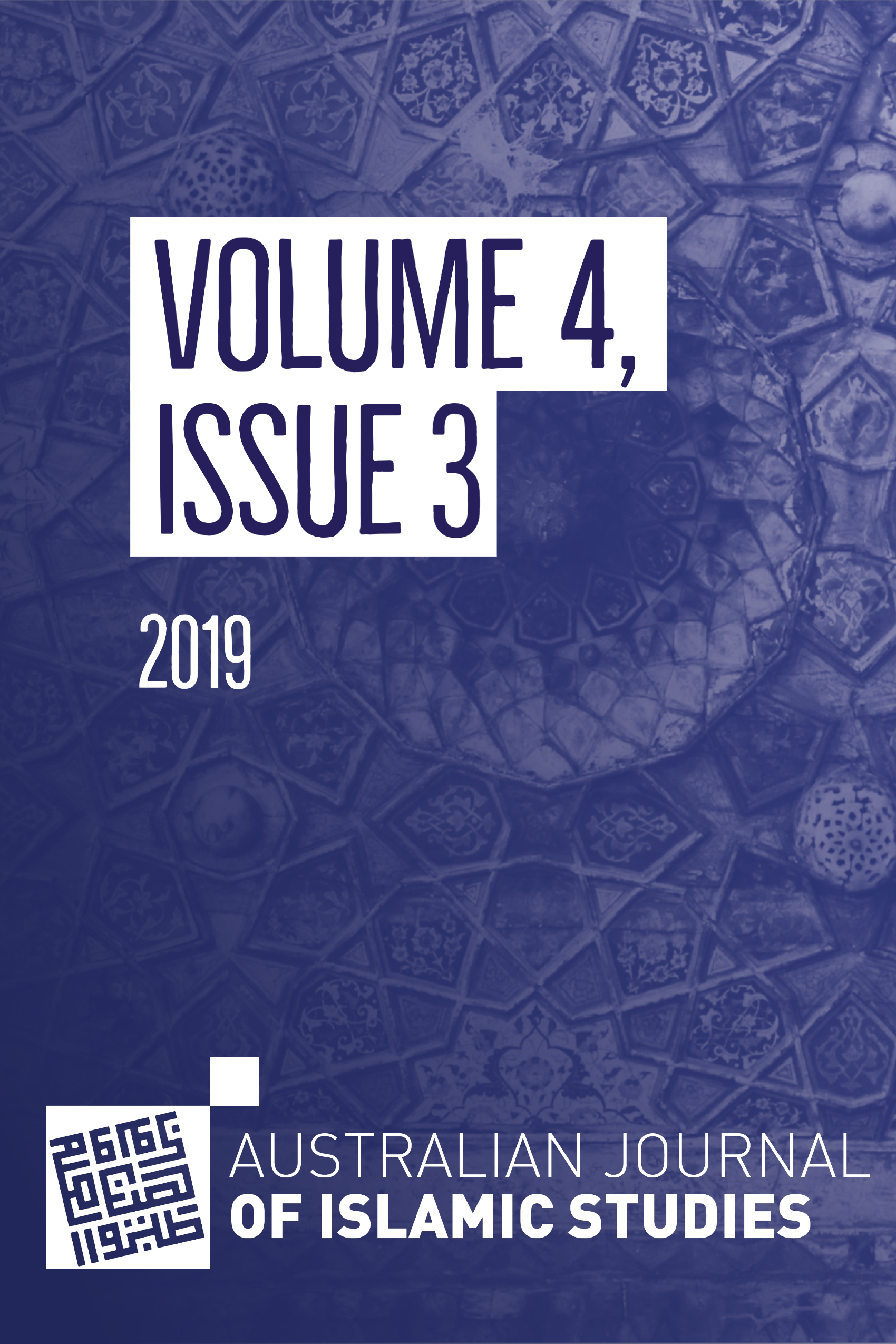Human Rights and Guilt by Association: Said Nursi's Renewal Approach

Abstract
Violating human rights, committing crimes, and mass killing due to guilt by association is as old as human beings. Most of the genocides in human history are committed because of guilt by association. The Universal Declaration of Human Rights is one of the most important steps regarding human rights, however, there is no article which explicitly bans committing crime and killing due to guilt by association. Although guilt by association is considered unlawful in modern day legal systems, it exists in all cultures, among adherents of religions and nations including Muslim countries. Despite the strong objection occurring within the Qur’an, violating human rights due to guilt by association, it has been common, in both the past and present, across the Muslim world. Disregarding such important moral principles has caused great injustice and barbarous acts in the world.
In this paper, I will analyse the word haqq, in its sense of meaning “right” in the sacred texts of Islam, focusing on its relation to guilt by association. Secondly, I will examine how the Qur’anic verse “No bearer of burdens can bear the burden of another“[1]bans guilt by association in the exegetical works. This is shown to take on particular significance within Said Nursi’s (1877-1960) renewal approach. Finally, this paper argues that guilt by association is causing great injustice, tyranny, and crime. This study proposes that it must be added to the Universal Declaration of Human Rights and banned by the UN.
[1] Qur’an, 6:164, 35:18, 53:38
Keywords
Guilt by association, Human Rights, UH Human Rights Charter, Islam, Said Nursi
References
REFERENCES
Abdul Baqi, Muhammed Fuad. Al-Mujam al- Mufahras li Alfaz al-Qur’an, Istanbul: Cagri Yayinlari, 1990.
Al-Baladhuri, Kitab Futuh al- Buldan, trans Phillip Khuri Hitti, New York: Colombia University, Longmans, Green &Co Agents, 1919.
Al-Qurtubi, Al-Jamiu’l Ahkam al-Qur’an, https://www.altafsir.com/Tafasir.asp?tMadhNo=1&tTafsirNo=5&tSoraNo=6&tAyahNo=145&tDisplay=yes&Page=2&Size=1&LanguageId=1 accessed 07.11.2019
Cagrici, Mustafa. Kull Hakki, C 26, Ankara: TDV Islam Ansiklopedisi, 2002.
Cole, David. “Secrecy, Guilt by Association, and the Terrorist Profile,” Journal of Law and Religion V.XV (2001):267-288.
Crosette, Barbara. “Iraqi Sanctions, Kill Children, U.N. Reports,” The New York Times, Dec. 1, 1995
Dilek, Sener, Risale-i Nur: Method and Aim, http://www.nur.org/en/nurcenter/nurlibrary/The_Risale_i_Nur_s_Method_And_Aim_148 retrieved 23.9.2013
Din Isleri Yuksek Kurulu, Kendi Dilinden Feto, Ankara: Diyanet Isleri Baskanligi Yayinlari, 2017.
Eckhardt, William. “Civilizations, Empires, and Wars,” Journal of Peace Research, Vol. 27, No. 1 (1990):9-24.
Falk, Avner. Anti-semitism: A History and Psychoanalysis of Contemporary Hatred, ABC-CLIO, 2008.
Goto, Nobuhiko., Jolanda Jetten, Minoru Karasawa and Matthew J. Hornsey, “The Sins of Their Fathers: When Current Generations Are Held to Account for the Transgressions of Previous Generations,” Political Psychology, Vol. 36, No. 4 (2015):479-487.
Hirsh, Emil G. Judah David Eisenstein, Gentile, Jewish Encyclopedia, http://jewishencyclopedia.com/articles/6585-gentile accessed 04.11.2019
Ibn Majah, Hadith No 3055, https://sunnah.com/urn/1280850 accessed 11.11.2019
Imam Abu Yusuf, Kitab al-Kharaj cited in S. M. Sayeed, “Human Rights in Islam,” Hamdard Islamicus, Vol. IX No. 3,(1980):67-75.
Iraqi Sanctions, Kill Children, U.N. Reports,” By Barbara Crossette, The New York Times, Dec. 1, 1995.
Jaspers, Karl. The Question of German Guilt, New York: Capricorn Books,1967.
Jeremiah, J. “Guilt by association, three words in search of a meaning”, The University of Chicago Law Review, Vol. 17, No. 1 (1949):148-162.
Kamali, Mohammad Hashim., Shari’ah Law: An Introduction, Oxford: Oneworld Publication, 2008.
Khaled M. Abou El Fadl, Saudi Arabia Is Misusing Mecca, The New York Times - Nov. 12, 2018, https://www.nytimes.com/2018/11/12/opinion/saudi-arabia-mbs-grandmosque-mecca-politics.html
Klandermans, Bert. Merel Werner and Marjoka van Doorn, “Apartheid's Legacy: Collective Guilt, Political Ideology, and Compensation” Political Psychology, Vol. 29, No. 3 ( 2008):331-349.
Miller, Fred, Aristotle's Political Theory, The Stanford Encyclopedia of Philosophy (Winter 2017 Edition), Edward N. Zalta (ed.), URL = <https://plato.stanford.edu/archives/win2017/entries/aristotle-politics/> accessed 20.10.2019
Moosa, Najma. “Human Rights in Islam,” South African Journal on Human Rights, 14:4,( 1998):508-524.
Muslim, hadith no 2643 https://sunnah.com/muslim/46 accessed 03.10.2019
Nasr, Seyyed Hossein Nasr. Caner K. Dagli, Maria Massi Dakake, Joseph E.B. Lumbard, Mohammed Rustom, The Study Quran :A New Translation and Commentary, New York: Harper Collins, 2015.
Nursi,Said. Flashes, trans. Sukran Vahide, Istanbul: Sozler Publications,2001.
Nursi, Said. Damascus Sermon, Ankara: Ihlas Nur Nesriyat, 2004.
Nursi, Said. Emirdag Lahikasi, Istanbul: Sahdamar Yayinlari, 2014.
Nursi, Said, Kastamonu Lahikasi, Ankara: Ihlas Nur Nesriyat, 2004.
Nursi,Said. The Letters, trans. Sukran Vahide, Istanbul: Sozler Publications,2006.
Rudin,Rabbi James. Christians & Jews—Faith to Faith: Tragic History, Promising Present, Fragile Future, Jewish Lights Publishing, 2013.
Ricketts, Aidan Ricketts, “Freedom of Association or Guilt by Association: Australia’s new Anti-Terrorism Laws and the Retreat of Political Liberty,” Southern Cross University Law Review, V 6, (2002):133-150.
Sahin, Osman.“Islam Hukuku Metodoljisinde Istishab,” Ondokuz Mayis Universitesi Ilahiyat Fakultesi Dergisi sayi, 12-13 (2001):490-516.
Sayeed, S. M.“Human Rights in Islam,” Hamdard Islamicus, Vol. IX No. 3, (1980):67-75.
UNICEF report see http://iraq.undg.org/uploads/doc/4113-Child_and_Maternal_Mortality_Survey_1999__part_a_.pdf accessed 13.10.2019
Wehr, Hans. A Dictionary of Modern Arabic, edited by J. Milton Coven, third edition, Ithaca/New York: Spoken Language Service inc,1976.
Yavuz, Hakan. The Sufi Conception of Jihad: The Case of Said Nursi, http://www.bediuzzamansaidnursi.org/en/icerik/sufi-conception-jihad-case-said-nursi accessed 20.10.2019
Yucel, Salih. “An Islamic Perspective of the Natural Environment and Animals: Said Nursi and his Renewalist Philosophy,” Umran: International Journal of Islamic and Civilisational Studies, No 1, (2018):56-68.
Zylicz, Piotr Olaf.and Ludmila Poleszak, “Naturalistic Conception of Collective Guilt,” Humboldt Journal of Social Relations, Vol. 29, No. 2, (2005):190.
WEBSITES
https://legaldictionary.net https://www.dictionary.com
https://biblia.com
https://www.bbc.com
www.sunnah.com
www.mquran.com